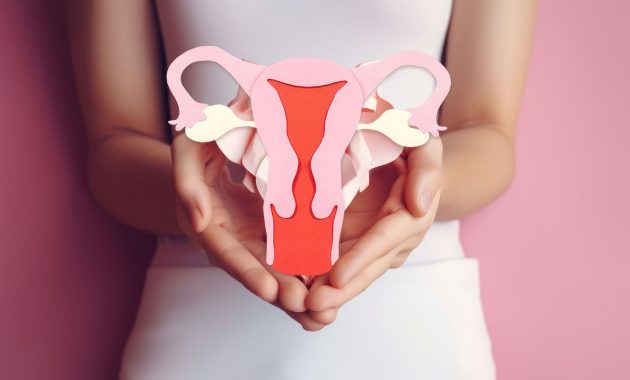Uterine fibroids are common, but may not always show any symptoms. Here’s everything you need to know about asymptomatic uterine fibroids.
Uterine fibroids are common growths that affect the uterus of a woman. They mostly affect you when you are unable to get pregnant and give birth. Uterine fibroids are not cancer, and they might not turn into one ever. While some women may experience symptoms of the condition, others may not. These are called asymptomatic uterine fibroids. These are benign growths in the uterus that often go undetected until complications such as excruciating pain and bleeding occur. Cases of uterine fibroids are often asymptomatic, making them particularly dangerous for reproductive health, if not detected at the right time.
Fifty percent of uterine fibroids go undetected: Study
A study published in the research journal Clinical Obstetrics and Gynaecology found that at least 50 percent of uterine fibroids are asymptomatic. This figure is likely to be an underestimate as it is based on women in whom fibroids are found incidentally during pelvic exams, ultrasound or cervical screening. Cases of uterine fibroids are sometimes asymptomatic, making them particularly dangerous for reproductive health, if not detected at the right time.

Routine checkups enable doctors to detect and monitor the size, number, and position of uterine fibroids. This can help avoid potential complications such as heavy or prolonged menstrual bleeding, pelvic pain, or fertility issues. Regular screenings like pelvic exams and ultrasounds are crucial for women from adolescence through post-menopause. These screenings can help identify and address gynecological problems early, potentially avoiding the need for major surgeries like hysterectomies (removal of the uterus).
Also Read: All about uterine fibroids
Complications of asymptomatic uterine fibroids
There are various complications that can arise from non-symptomatic or asymptomatic uterine fibroids:
Also Read

1. Fibroids can cause heavy, prolonged, or irregular menstrual bleeding, which can lead to anemia and fatigue. The heavy bleeding may also require frequent pad/tampon changes, disrupting daily activities.
2. Fibroids can put pressure on the bladder or rectum, leading to frequent urination, a feeling of incomplete bladder emptying, or constipation.
3. Larger fibroids can distort the shape of the uterus, which may interfere with the implantation of a fertilized egg, potentially causing infertility or increasing the risk of miscarriage.
4. Pain and discomfort during intercourse are common issues, as the fibroids can put pressure on the surrounding organs and tissues. This can negatively impact intimate relationships.
5. Rarely, fibroids can undergo sudden changes, such as twisting, degeneration, or bleeding, which can cause severe pain and require emergency medical attention.
Symptoms of uterine fibroids
While asymptomatic uterine fibroids refer to a condition when you do not experience any symptoms, it is important for women to know the typical symptoms of fibroids to recognise them. These include:
If you experience any of these symptoms, seek medical evaluation and discuss appropriate treatment options. Ignoring or downplaying the potential complications of fibroids may worsen the symptoms.

Treatment for asymptomatic uterine fibroids
Fibroid removal surgery or myomectomy can help to deal with uterine fibroids while preserving the uterus. This procedure gives relief to those having symptoms such as heavy menstrual bleeding, pelvic pain, and fertility issues. With advancements in surgical techniques, minimally invasive approaches like laparoscopic or robotic-assisted myomectomies have gained popularity due to shorter recovery times and less scarring compared to traditional open surgeries. However, the doctor will decide if you need surgery based on the location and size of the fibroid. So, it is best to talk to your doctor, and detecting would only be possible if you go for regular checkups.
Takeaway
By staying proactive with regular gynecological visits, women can take charge of their health and make the right choices regarding treatment options for asymptomatic fibroids before they escalate into major concerns. Women should take charge of their health and ensure to follow the instructions given by the expert.
Select Topics of your interest and let us customize your feed.
PERSONALISE NOW
About the Author
Dr Payal Narang is the consultant obstetrician and gynecologist at Motherhood Hospital. She is known for providing world-class and patient-focused medical care for every stage of a woman’s life. Her experience is coupled with genuine concern for all her patients. She has expertise and areas of focus are encouraging painless normal delivery, pre-marital counseling, pre and post-pregnancy care, high-risk obstetrics (cases like GDM, PIH, BOH, Placenta previa, APH, Twin pregnancy, etc.), Contraceptive advice and family planning, growing up and adolescent issues and counseling, PCOS, cancer screening and pap smear and vaccination, Medical termination of pregnancy, infertility counseling and treatment, IUI, childbirth education, antenatal classes, and all obstetrics and gynecological surgeries. …Read More
#Asymptomatic #uterine #fibroids
